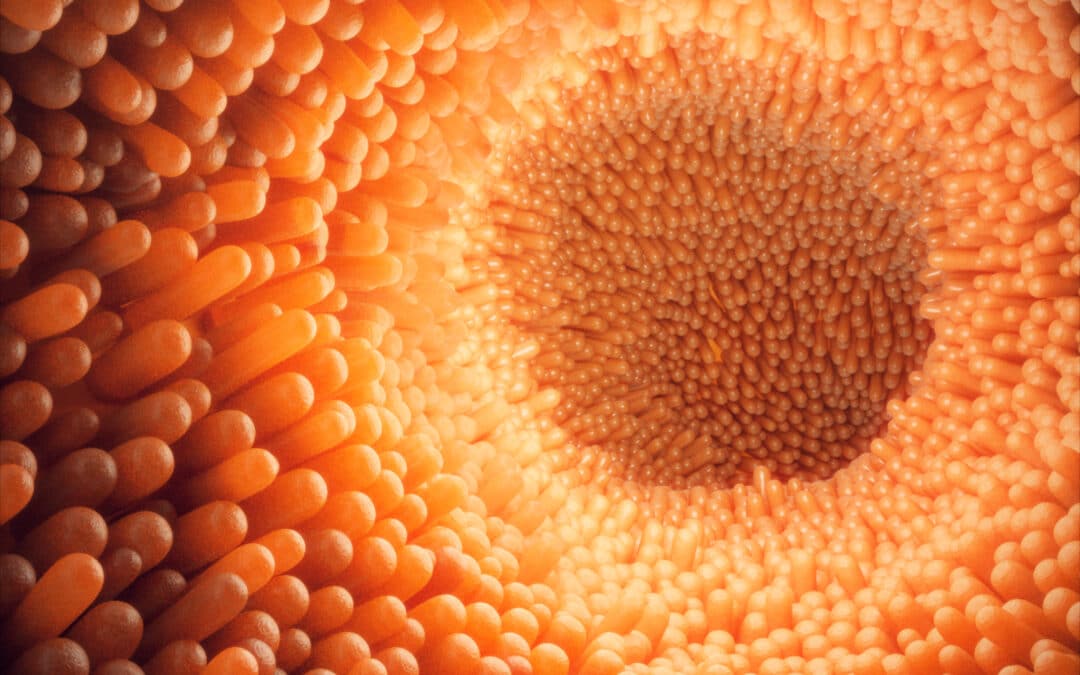According to the dictionary, something “glorious” is magnificent and impressive. The human gut, or gastrointestinal/digestive tract, fits this definition perfectly since cutting-edge science has shown that our gut microbiome, home to trillions of beneficial bacteria, is likely the key to overall health, including mood, energy, weight management, and mental function. Our gastrointestinal system, which makes up about 75% of our immune system, protects us from infection, supports metabolism, and promotes healthy digestion and elimination.
The Human Gut
Many scientists now recognize the gut as an external organ, although it is inside our body. This is because the gut is the gateway to the rest of the body. The intestinal barrier, located in the small intestine’s lining, prevents harmful substances from entering our body. So, where do things go wrong? When that barrier is damaged or compromised, foreign molecules can pass through the barrier to the bloodstream, causing the body to launch an immune response to protect itself. This is known as intestinal permeability, or what many refer to as “leaky gut,” which is connected to a wide variety of health conditions, including food sensitivities, allergies, and autoimmune diseases. The following is a partial list of conditions related to intestinal permeability:
- Rheumatoid Arthritis
- Fibromyalgia
- Hashimoto’s Thyroiditis
- Inflammatory Bowel Diseases (Crohn’s, Ulcerative Colitis)
- Depression, Anxiety, and Mood Disorders
- Schizophrenia and other mental health disorders
- Multiple Sclerosis
- Lupus
- Chronic Fatigue Syndrome
- Type 1 Diabetes
- Asthma and Allergies
- Skin Disorders (Acne, Eczema, Psoriasis)
Human Gut Friends and Foes
Our gut must also contain a proper balance and a wide diversity of beneficial bacteria. These tiny intestinal organisms digest your food, control your appetite and metabolism, orchestrate your immune system, affect your mood, and help determine how your genes are expressed. They play a significant role in heart, bone, and brain health and produce certain nutrients. However, our modern work is full of things that upset the balance of the microbiome, leaving most of the population with inadequate beneficial bacteria. The following lists the most common offenders when it comes to gut health:
- Medications such as antibiotics, birth control, non-steroidal anti-inflammatory drugs (NSAIDs), anti-depressants, antacids, and more
- Chronic stress, which can affect gut permeability and change bacterial composition
- Exposure to environmental toxins, especially pesticides, herbicides, heavy metals (lead, mercury, arsenic), and plastics (Bisphenol-A)
- Food toxins, including artificial preservatives, colorings, sweeteners, hormones, antibiotics, and chemical additives—in some cases, wheat and gluten.
- Dental toxins, including mercury amalgams, root canal toxins, and poor oral hygiene
- Inadequate bacterial acquisition at birth (C-section, parents gut health, inadequate breastfeeding)
- Current health or disease status
Improve Gut Health
The good news is that our intestinal cells can regenerate, and the lining can be repaired. The human gut is the most highly regenerative organ in the body, regenerating its lining every five to seven days. This continual cell renewal allows the lining to withstand the constant wear and tear of breaking down food, absorbing nutrients, and eliminating waste. To improve the health of your glorious gut, follow this four-step approach:
- Remove the gut offenders listed above as best you can to minimize cumulative damage.
- Restore the health of your digestive system by consuming whole foods rich in enzymes, fiber, and nutrients.
- Reintroduce beneficial bacteria by consuming fermented foods (yogurt, sauerkraut, miso, tempeh, kimchi, kombucha, etc. – see last month’s newsletter) or by taking a probiotic supplement.
- Repair the intestinal lining with gut-healing foods. Diet has the most powerful influence on gut microbial communities in humans. Choose whole foods rich in polyphenols, which promote the growth of probiotic microbes and decrease disease-causing bacteria. Such foods include berries, flax seeds, olives, beans/legumes, whole grains, starchy fruits and vegetables, and some foods that are cooked and then cooled to increase resistant starch (rice, potatoes, pasta).
If you have ever had a digestive problem, you know how it can negatively affect your health. Fixing problems in the gut, especially with bacterial balance, may lead to many other health improvements, such as a loss of excess fat, gains in energy, and better overall mood. Never underestimate your power to restore health by focusing on your gut.
Sanoviv Medical Institute’s Microbiome Restore program is an excellent choice for improving gut health.

